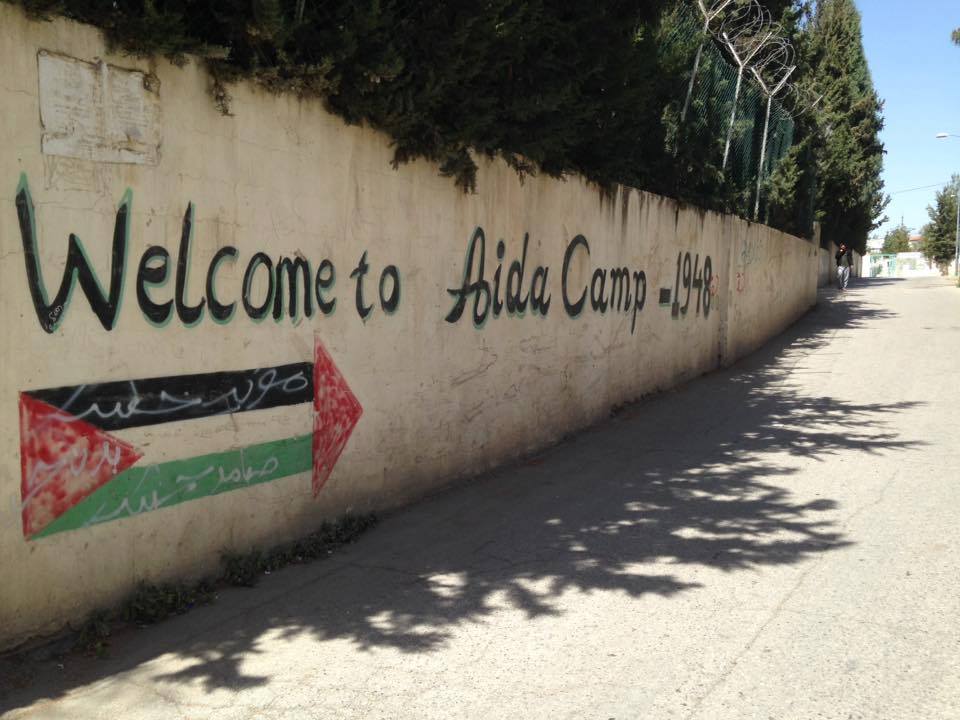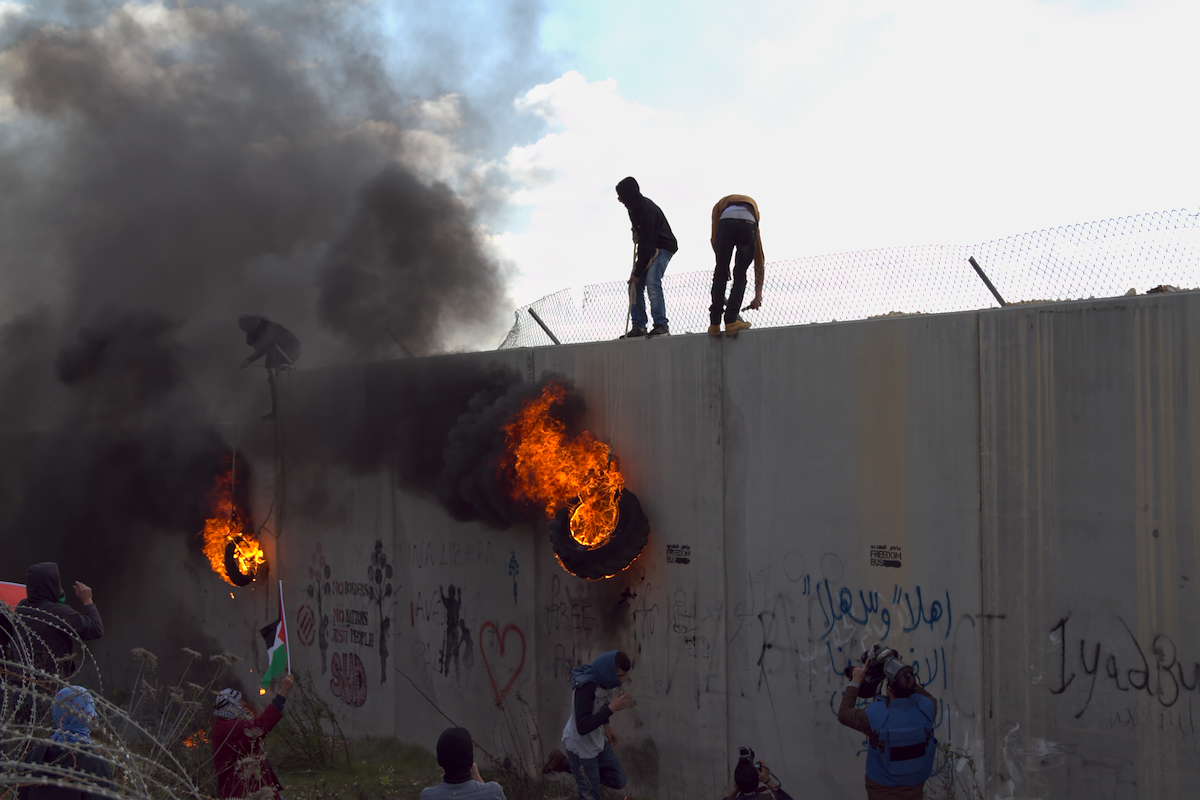Tag: Bethlehem
-
The ‘Beautiful Resistance’ of Aida Camp – “People cannot tolerate injustice for eternity”
Tucked within the antiquated corridors of the municipality of Bethlehem, there lies Aida Camp, established 1950. The densely populated cement structures, thinly outlined by narrow passageways, are a living summation of the occupation of Palestine itself. Scraping elbows with the massive checkpoint pathway between Bethlehem and Jerusalem, hedged by the West Bank apartheid separation wall…
-
Banksy and the Walled Off Hotel: a personal view
13th March 2017 | International Solidarity Movement, al-Khalil team | Hebron, occupied Palestine Over the last weeks there has been a lot of noise about Banksy (a street artist from the UK, now darling of the art world) and his new hotel in Bethlehem. Initially the vast majority of news articles seemed to glow with…
-
Demonstrators demand return of martyrs bodies in Bethlehem
15th January 2017 | International Solidarity Movement, al-Khalil team | Bethlehem, occupied Palestine The Prisoners Club held a demonstration and march to the illegal apartheid wall on Sunday afternoon to demand the return of the bodies of martyrs held unjustly by the colonial occupying Zionist State of Israel. The Zionist Israeli forces often take the…



